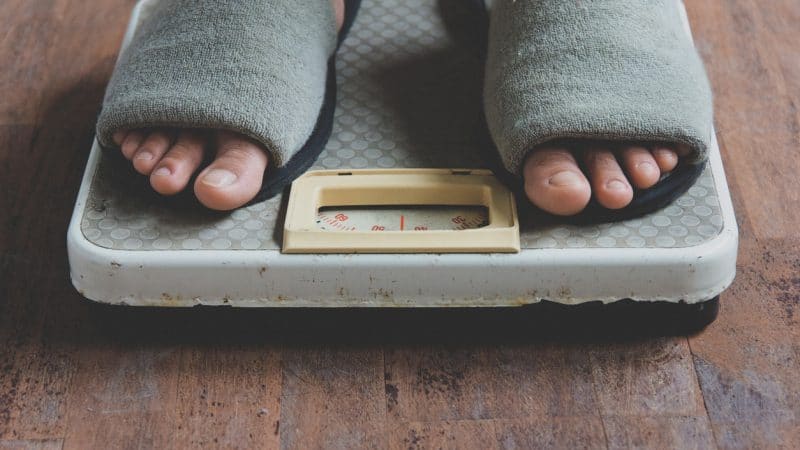12 Little-Known Weight Loss Facts You Should Embrace Today
Are you holding on to harmful myths about losing weight? They might be keeping you from being healthy. Here are 12 weight loss facts you should know today.
on Instagram The most underrated sentence on the internet today: Losing weight is hard.
Whether you’re trying to lose a few extra pounds or a couple hundred, you’re not alone. More than one-third of all adults in the U.S. are obese. Even kids are affected, 1 in 6 children are considered obese.
It’s no secret that shedding those extra pounds is an arduous task. And with all of the misinformation floating around the web, it’s easy to stray to the wrong path.
We’re here to help you debunk some of those weight loss myths you’ve been told your whole life, and replace them with some cold, hard weight loss facts.
Read on if you’re ready for some truth in your life.
Debunked: 4 Weight Loss Myths
Because everyone knows that everything you read on the internet is true…
That statement could not be further from the truth, my friend. Whether you were told that weight loss is all about willpower, or if you’ve ever thought that someone was healthy just because they are skinny, these common misconceptions will lead you down a very wrong path and could even lead to more weight gain.
Weight loss companies sporting supplements are multi-million dollar companies, and they feed off of these myths. While these lies may fool us, they don’t fool our metabolisms.
Stop the lies, and get debunked.
1. Weight Loss is About Willpower
It’s true in that willpower plays a huge role in weight loss, but it’s not the whole story.
There are so many biological factors that play in a roll in obesity and weight loss. A number of medical conditions can cause obesity, such as PCOS, depression, or hypothyroidism. You can’t pick your genetic code any more than you can pick whether you’re obese or not.
If you’re one of the millions of people affected by a medical condition causing obesity, no amount of willpower will help you lose the weight. Nothing that anyone can ever say to you will change that.

2. Fast Food is Always Bad
Just because it’s fast doesn’t mean it’s bad.
It’s about what you order, not where you order it. If you order a Big Mac, you’re looking at about 800 calories, but why not order a salad? Just don’t smother it in creamy ranch dressing.
For example, just a ranch dressing packet from McDonald’s has 110 calories. Try using their low-fat balsamic vinaigrette dressing. Instead of 110, you’re looking at about 35 calories.
Health consciousness awareness is booming, and fast food restaurants are trying to accommodate it. Many offer option like apples or wraps as healthier alternatives.
Fast food doesn’t have to be unhealthy.
3. Thin People Are Healthy
Sure, obesity is a huge factor in heart disease, diabetes, and much more. But that doesn’t mean that thin people are healthier. There are a lot of people that have naturally high metabolic rates, and those people tend to eat more trash food than someone with a slower metabolism.
With all that trash food tasting so good, it’s easy to forget that your body needs real vitamins. This can lead to many disorders like anemia, depression, autoimmune disorders, and much more.
In the same way, just because someone is obese doesn’t mean that they are not metabolically unhealthy. Fat cells are stored subcutaneously, meaning that they are stored under the skin. Some people have fat storage disorders, but that doesn’t mean that the rest of their body isn’t in top shape.
Learn what it actually means to be fit here in our podcast.
4. Diet Foods Are Good for You
It’s easy to fall victim of the marketing scam that diet foods really are. Junk food is junk food, even if it says “diet” or “low calorie” on the packaging.
Product packaging is made to market, not to inform. The truth of it is, diet coke is just as bad for you as regular coke, just in a different way. Sugar-free as it may be, something has to be there to achieve that sweet taste we all love.
Check out our body transformation food section to learn more about finding healthy foods.
Now, the Weight Loss Facts: Top 12
Now that we’ve decluttered your mind of a few weight loss myths, let’s talk about the facts. The main goal of losing weight is to boost your metabolism and limit your calorie intake. This doesn’t mean you should quit eating, but it does mean that you shouldn’t consume more calories than your body burns in a day.
These 12 facts are backed up with research and repeated studies to proven effectiveness.
1. Water Works
It’s true what they say about water, it can help improve weight loss.
Research shows that drinking water can potentially boost your metabolic rate by 25-30%. Even drinking just half a liter of water can increase metabolism.
Some studies suggest that often times when you feel hungry, you’re really just thirsty. Try drinking a bottle of water before you pick up the snack. If you’re still hungry in about 5 minutes, go for the snack.
2. Keep Drinking Coffee
Forget everything you’ve been told about ditching your morning coffee. It’s not that coffee that’s bad for you, it’s the creamer and sugar.
Coffee is packed with antioxidants and is fantastic for your gut health. Research even suggests that your morning cup of joe can increase your metabolism by 10-29%, effectively helping you burn more calories.
It’s time to break up with your creamer, not your coffee.
3. Green Tea Boosts Metabolism
Similar to coffee, green tea is a great metabolism booster. Green tea contains small amounts of caffeine and something called catechins. Together, these chemicals work synergistically to battle excess fat cells.
Drink a cup of green tea in the morning if you’re not a coffee person, or try a green tea vitamin with breakfast.
4. Intermittent Fasting Is a Real Thing
Fasting is a popular weight loss technique, however, many people misunderstand it. Fasting is not meant for you to just stop eating. This leads to the belief that the less you eat, the less you way (which is totally false).
Intermittent fasting is intended to boost your metabolism. When your body gets used to a particular pattern, the metabolism can slow down and essentially go into a resting state. Change things up by intermittent fasting.
A popular fasting technique is 8/16, where you snack for 8 hours and then fast for 16.
5. Eat Less Refined Carbs
Carbs are not bad. I repeat, carbs are not bad.
What’s bad for you are refined carbs.
Refined carbs are things like bread, pasta, bagels. Too many refined carbs can result in blood sugar spikes.
Whole carbs are very different from refined carbs. Whole cards are unprocessed and are found in things like oats, bananas, oranges, and even beats.
When your body has a blood sugar spike, your pancreas goes into overdrive creating insulin in an attempt to counteract the blood glucose levels. Over time, this can lead to pancreatic damage and diabetes.
6. Muscle Weighs More than Fat
The purpose of this fact is not to help you lose weight, but to remind you that even though the sale doesn’t change, that doesn’t mean your BMI isn’t decreasing.
If you’re including regular workouts with your diet, which you should be, then you’re likely gaining muscle mass. Remember that muscle weighs more than fat, so if it seems like you’re gaining weight, there’s no need to fret.
The weight you are gaining is from muscle cells replacing fat cells. The scale usually goes up before it goes down.
7. Vitamin D is a Suspect for Weight Loss
We all know that vitamin D is great for bone health, but it has many more benefits.
Vitamin D is necessary for your body to even digest and absorb other vitamins. With proper vitamin D consumption, you can better absorb vitamins and in turn boost your immune system and metabolic rate.
One study found that people who have a vitamin D deficiency were more prone to obesity.
8. Men Tend to Have a Higher Metabolism
Men irritate women enough as it is, but this is one more reason. Men tend to have a higher metabolism than women.
Why?
Because men tend to have more muscle mass and more testosterone than women. Both of these are contributing factors to the body’s metabolic rate.
One study showed that when men and women who were placed on the same weight loss regimen, the men lost nearly twice as much as the women.
9. You Can’t Just Diet, You Have to Exercise
We mentioned earlier that muscle weighs more than fat, and that you should definitely be working regular exercise into your diet.
The reason low-calorie diets work is that the body starts using stored fat cells as an energy source. What most people don’t realize, though, is that the body will also start using muscle cells as an energy source. When you’re on a low-calorie diet, it’s critical to incorporate exercise into your daily routine to avoid muscle loss.
10. Eating Slower Can Help You Feel Full Faster
This one may sound a bit dumb, but we promise there’s research to back it up.
When you chew your food more slowly, your brain has more time to accurately register your hunger levels. This can help you feel full faster, and in turn, eat fewer calories.
A research study that was done on 30 healthy women showed that eating slowly lead to decreases in their energy intake.
11. Eating Spicy Foods Can Help
Do you have a liking to spicy foods?
Peppers contain something called capsaicin oil. The oil has shown to boost your metabolism when eaten in certain doses. This study showed that when eaten in a high enough dose, the capsaicin oil actually burned about 10 more calories per meal.
Fun Fact: Capsaicin oil is what gives the food it’s spiciness. The capsaicin oil binds with temperature receptors in your mouth and throat, effectively tricking your brain into thinking you’ve put something ‘hot’ in your mouth. This is the same reason why mint gum makes your mouth feel cold.

12. Sleeping is More Important Than You Think
At the end of the day, there’s sleep. A poor sleep schedule is strongly related to weight gain.
Studies have shown that people with deprivation are more prone to weight gain.
See, when you sleep, your body rests and resets itself. Sleeping renews your energy. When you have poor sleeping habits, your body doesn’t get the chance to renew its energy so it requires more calories.
Lack of sleep disrupts the hormones that control your appetite, ghrelin being one of them, causing you to feel hungrier more often. That’s the reason behind you craving sugar and simple carbohydrates when you’re sleep deprived. They give you short bursts of energy- which your body needs.
However, neither of them will give you sustained energy and you’ll find yourself hungry and tired again in about an hour.
All in All, Just Don’t Lose Yourself
Most of us want to lose weight, whether its 10 pounds or 100 pounds. The reality is that there are healthy and unhealthy ways to do it.
Making small lifestyle changes is the healthier way to shred any unwanted weight and we hope you got the information you need with these weight loss facts.
If you’re interested in adding exercise to your daily routine, try our 9-week challenge. Your personal coach will guide you through fitness exercises and even help you create a meal plan that works for you.
Or if you’re just interested in learning more about us, check out this short video.
Most importantly, no matter what anyone says, just be you. Remember, your weight measures your gravitational pull, not your worth. Follow us on Instagram so you get a little bit of motivation every day!
















Recent Comments